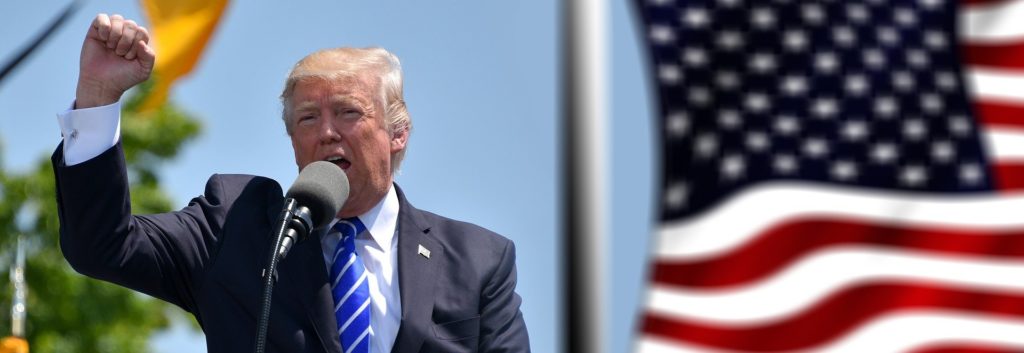The right to free speech is not an excuse for turning a blind eye to online aggression.

Social networking sites have been both the heroes and villains of the COVID-19 pandemic, connecting loved ones across Tiers and time zones while simultaneously providing a safe haven for fake news and hate speech.
This latter is perhaps best illustrated by none other than the former President of the United States, Donald Trump, whose tweets following the presidential election have been widely condemned for inciting the January Capitol riot, which led to the deaths of five people.
While Trump is the most eminent figure to have been banned by the social media giant, he is by no means the first. In November 2018, the Canadian journalist Meghan Murphy was banned permanently from Twitter for hateful speech towards transgender people. Murphy’s response was to launch a legal dispute contesting her right to free speech.
When right-wing commentator Katie Hopkins suffered a similar fate in June 2020, BBC News drew comparisons between Hopkins and Trump, but commented that ‘leaving such tweets up in the public interest is an exception Twitter makes for world leaders – other accounts like Ms Hopkins’ risk being suspended when they break Twitter’s rules.’
Is the right to free speech, even if it constitutes hateful abuse, really in the public interest? And, if so, will it always take a riot to prompt social media giants to act?
Social media – a censorship free zone?
We have no problem identifying aggression or unacceptable conduct in real life. When it comes to social networking sites, however, the boundaries seem more blurred.
A lack of clarity and universality when it comes to bans is certainly not helping, as more than 70% of Americans, and more than 80% of Republican-leaning voters, believe that social networking sites intentionally censure opinions they do not agree with. Even scholars in Law and Ethics disagree on what constitutes harmful speech and whether such forms of speech should be restricted.
When Meghan Murphy accused Twitter of stifling her right to free speech, she tapped into the heart of the issue that is tying Twitter’s hands. Does permanently removing an individual from a social media platform stifle necessary debate? In the interests of avoiding a repeat of Capitol Hill, it is essential that we clarify the boundaries between free speech and hate speech and/or the processes necessary to define acceptable speech.
Consensus and consistency
One concern for social networking sites is the public backlash they might receive for ‘no-platforming’ controversial speakers. In the first study to model the factors that influence the acceptance of restrictions on free speech by social media sites, we find that users closely scrutinize how social networking sites handle controversies arising from political debates. Findings from our research show that observers of online aggression make trade-offs between free speech and the desire to punish aggression. Our findings show that, while observers of social media interactions dislike aggression and are willing to see it punished, the rhetoric of free speech is systematically employed to justify aggression that come from the observer’s own political side. In other words, free speech concerns are leveraged to foster partisan interests. .
The importance of preserving public trust means that social media sites should evaluate each banning case cautiously. In circumstances where banning an individual is inevitable because of high levels of online aggression, it is essential that the sites justify their decision to observing users and explain why the ban should not be interpreted as a limitation to users’ right to free speech.
The controversy that currently surrounds social media bans highlights the need for wider and more transparent discussions on what kind of speech should be restricted on social media, especially when it comes to political debates. Embedding rules against online aggression into public policy, rather than relying on the discretion of tech giants, would be one way to ensure a consistent approach to banning decisions. A clear policy, with buy-in from users, could prevent scepticism around bans that emerges from inconsistently and unfounded application of censorship.
We have seen the deadly consequences that can result from online aggression. Policy makers must exercise their power to make sure there are no safe spaces for hate speech.
Professor Paolo Antonetti, Professor in Marketing at NEOMA Business School and Dr Benedetta Crisafulli, Senior Lecturer in Birkbeck’s Department of Management are co-authors of the paper “I will defend your right to free speech, provided I agree with you”: How social media users react (or not) to online out-group aggression recently published by Psychology & Marketing.
